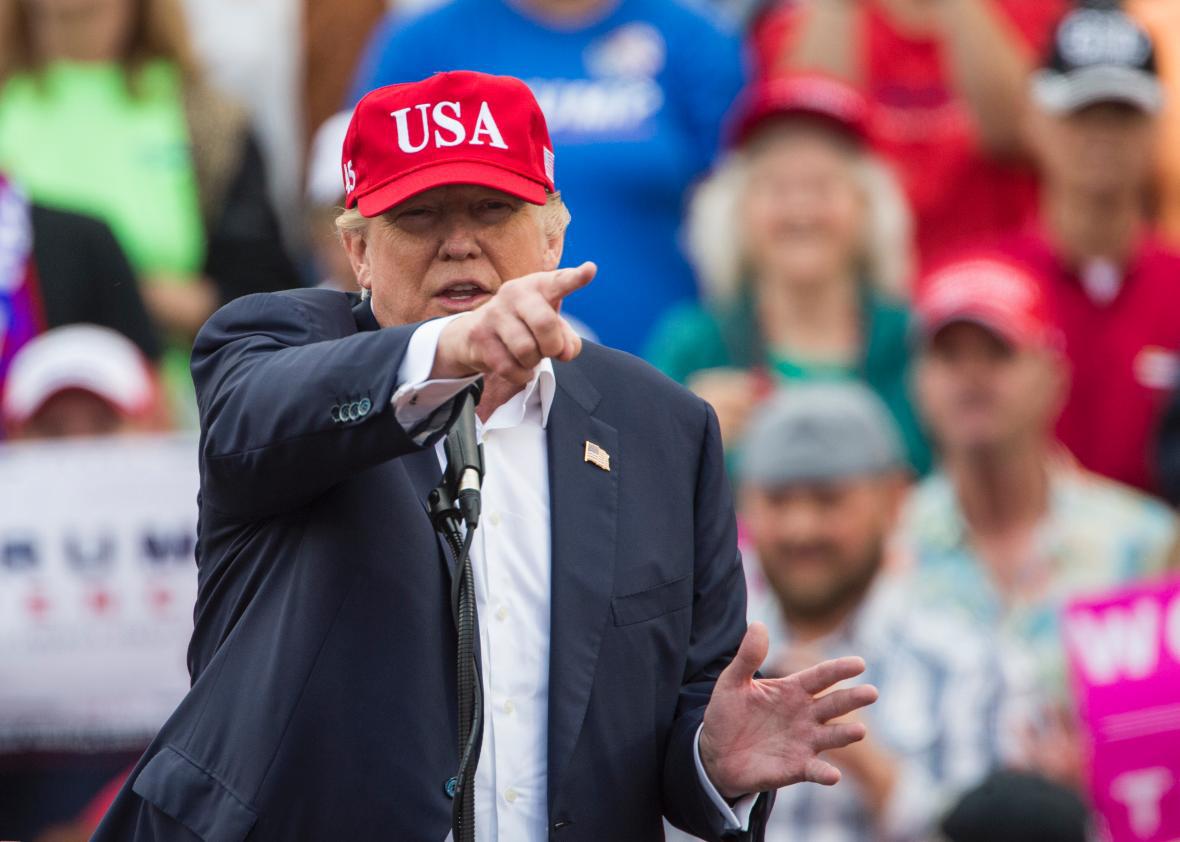Leaders in Europe were reeling Monday after President-elect Donald Trump expressed doubts about the way NATO operates and said he didn’t really care either way whether the European Union stays united. “This day will be influenced if not determined by the statements of the American president-elect, which caused here in Brussels astonishment and agitation,” Germany’s Foreign Minister Frank-Walter Steinmeier said. The minister spoke after Trump called NATO “obsolete” and said he thinks more countries will follow Britain’s lead and leave the E.U.
In an extensive joint interview with British newspaper The Times and German tabloid Bild, Trump seemed to suggest his presidency would usher in a major shift in the U.S. relationship with Europe. Trump said that the “U.K. was so smart in getting out” of the E.U., which he described as “a vehicle for Germany.” He said “others will leave” the European Union because “people want their own identity.” The president-elect also said NATO is “obsolete because it was, you know, designed many, many years ago” and countries aren’t paying their fair share of dues. “That being said, Nato is very important to me,” he added.
German Chancellor Angela Merkel was one of several European leaders who said the interview showed why the continent needs to stick together. “We Europeans have our fate in our own hands,” Merkel told reporters in Berlin when asked about Trump’s criticisms. The German leader also suggested she would wait until Trump is actually inaugurated before making any substantive comments about his statements.
“If the Europeans want to be protagonists, and not just spectators, they have to work closer together and accelerate on a common security and defense policy,” Sandro Gozi, Italy’s junior minister for European Affairs, said in an interview with Bloomberg. “I don’t share his prediction that there are other Brexit-type departures from the E.U. on the horizon.”
One of the aspects of Trump’s interview that most concerned European leaders was his description of the E.U. as a way to damage U.S. trade interests. If Trump is serious about what he said, it could mark a dramatic shift in the way Washington deals with the country’s European allies considering that U.S. leaders have long seen the E.U. as beneficial to the United States for both economic and national security reasons.
The ties between the United States and Europe are so deep that “the full ramifications of a breakdown in transatlantic relations are so extensive they are difficult to total,” notes the Washington Post. The paper explains:
U.S. guarantees underpin European security. The United States and the European Union, with a population of 500 million, are each other’s most important trading partner. For decades, European nations and the United States have worked tightly together on issues of war, peace and trade.
Yet for all their shock, European leaders also caution that they really don’t know what the U.S. policy toward the continent will be once Trump moves into the White House. Many are now quick to point out that James Mattis, who was nominated to become defense secretary, put forward much more traditional views in his confirmation hearing that included broad support for NATO.
It wasn’t just politicians who were surprised by Trump’s words as shares in German automakers took a dive after the president-elect warned cars built in Mexico would be taxed at 35 percent in the United States. “If they want to build cars for the world I would say wish them luck,” Trump said, specifically mentioning BMW’s plan to build a plant in Mexico. “They can build cars for the U.S. but they’ll be paying a 35 per cent tax on every car that comes into the country.” The German car industry is taking a wait-and-see approach, predicting lawmakers would stand in the way of higher duties. “We take the comments seriously, but it remains to be seen if and how the announcements will be implemented by the U.S. administration,” Matthias Wissmann, president of German auto industry association VDA, said.
